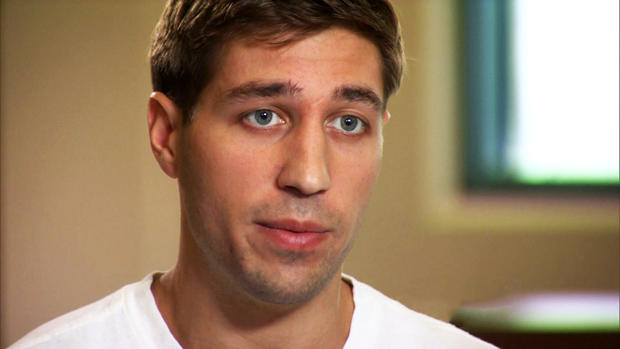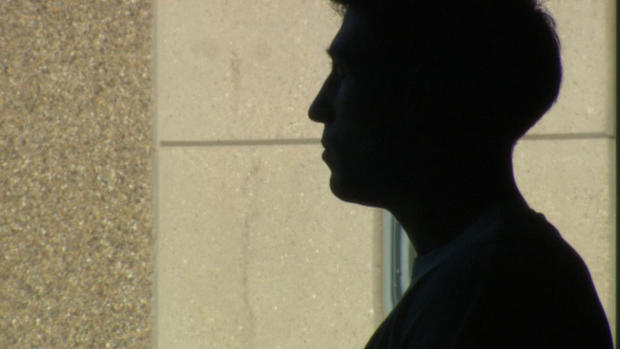Ryan Ferguson Update: Delayed Justice for Missouri man?
(CBS) -- The duty of a state prosecutor is to "seek justice," not merely to seek a conviction. What, then, is the prosecutor's obligation if he or she makes a mistake and an innocent man is convicted? Does the requirement to " seek justice" no longer hold? Can a prosecutor look the other way and force a wrongfully convicted man to spend years behind bars as he seeks that justice from other courts?
PICTURES: Kent Heitholt murder, crime scene and suspects
That appears to be the case in the matter of 28-year-old Ryan Ferguson. Ferguson is serving 40 years for the 2001 murder of Columbia, Missouri newspaper editor Kent Heitholt. Almost from the outset, the circumstances surrounding his conviction have troubled legal experts.
There has never been any physical evidence to connect Ferguson to what was a brutal, bloody crime. The only evidence there has ever been is the word of two witnesses - Charles Erickson, a childhood friend who claimed he and Ferguson committed the crime together, and Jerry Trump, a janitor who testified that he saw Ferguson at the scene.
Four years after Erickson's testimony put Ferguson behind bars, Erickson, a troubled teen and drug addict at the time of the murder, recanted and claimed he lied at trial.
The prosecutor in that case, Kevin Crane, has since become a judge. Only too willing to discuss the case during and after Ferguson's conviction, Crane now says his judicial position bars him from commenting on the new evidence that points to Ferguson's innocence.
The state's Attorney General, rather than taking a new look at the case, is now defending the conviction. And Ryan Ferguson has spent the last decade seeking help from higher courts whose contradictory rulings have only further complicated an already troubling case.
In 2010, Missouri's second highest court heard arguments in Ferguson's case. At the time, the appellate court judges, noting that the trial testimony of the main accuser contradicted other evidence, questioned Charles Erickson's credibility and said the case gave them "pause."
Still, in part, because one other witness remained against Ferguson, the justices passed on making a decision in the case. Instead, they suggested a different lower court take a look at it.
Two years later: another court, another hearing, and another recantation. In April, 2012, the other witness, Jerry Trump, came to court and admitted that he too lied at trial. With the only evidence against Ferguson now in doubt, you might think that Ferguson would finally get a new day in court. It didn't happen. That's because this judge, looking at much the same facts as the earlier court, reached a startling different conclusion. This judge ruled that Erickson's testimony against Ferguson at trial was credible. And as for Trump's recantation? Yes, Trump lied at trial, said the judge but it simply doesn't matter because his testimony was inconsequential to the jurors deciding Ferguson's fate.
That ruling is difficult to accept and flies in the face of what we have learned about this case since the verdict in 2005. Eyewitness testimony is always powerful, but in a trial with no physical evidence linking the defendant, Trump's testimony was key. I was in the courtroom covering the trial when, in a highly dramatic moment, I watched Trump point to the defendant and identified him as a man he saw near the victim's body.
And take a look at the exchange I had with some jurors following the verdict:
Moriarty: What about the fact that there was no blood found in Ryan's car?... No physical evidence at the scene. No eye witnesses that can say definitely Ryan and-- and Chuck. That-- that wasn't enough to keep you from a-- a guilty verdict.
Juror: Well, we did have one which was the janitor. He did say he had seen 'em there.
Moriarty: But, you know that he was much surer at the trial than he was right after the incident when he couldn't even help the police-- now you know that.That he couldn't help the police do a ske-- to do a sketch.
Juror: Right. With what was said through the whole trial, how he-- they both went from one place to the next, and then to go up there and the cleaning girl first seen the guy. And then-- then brought out her boss and he'd seen 'em, and pointed 'em out, that was a-- that was pretty much all you needed right there. You didn't need like, the hair or anything like that, I don't think because he's-- you got witness right there. You know what I'm saying?
Moriarty: So, you found Jerry Trump, the janitor, very credible.
Juror: Yes, I did.
The main witnesses who testified against Ryan Ferguson at trial have now both recanted and admitted they lied. There is no credible evidence that ties him to a murder. Yet Ferguson remains in prison and continues to fight for a new trial.
On Sept 10th, he will get yet one more chance. The same appellate court justices that once said Ferguson's case gives them "pause" has agreed to hear more oral arguments and determine if Ryan Ferguson got the justice he was promised nearly a decade ago.


